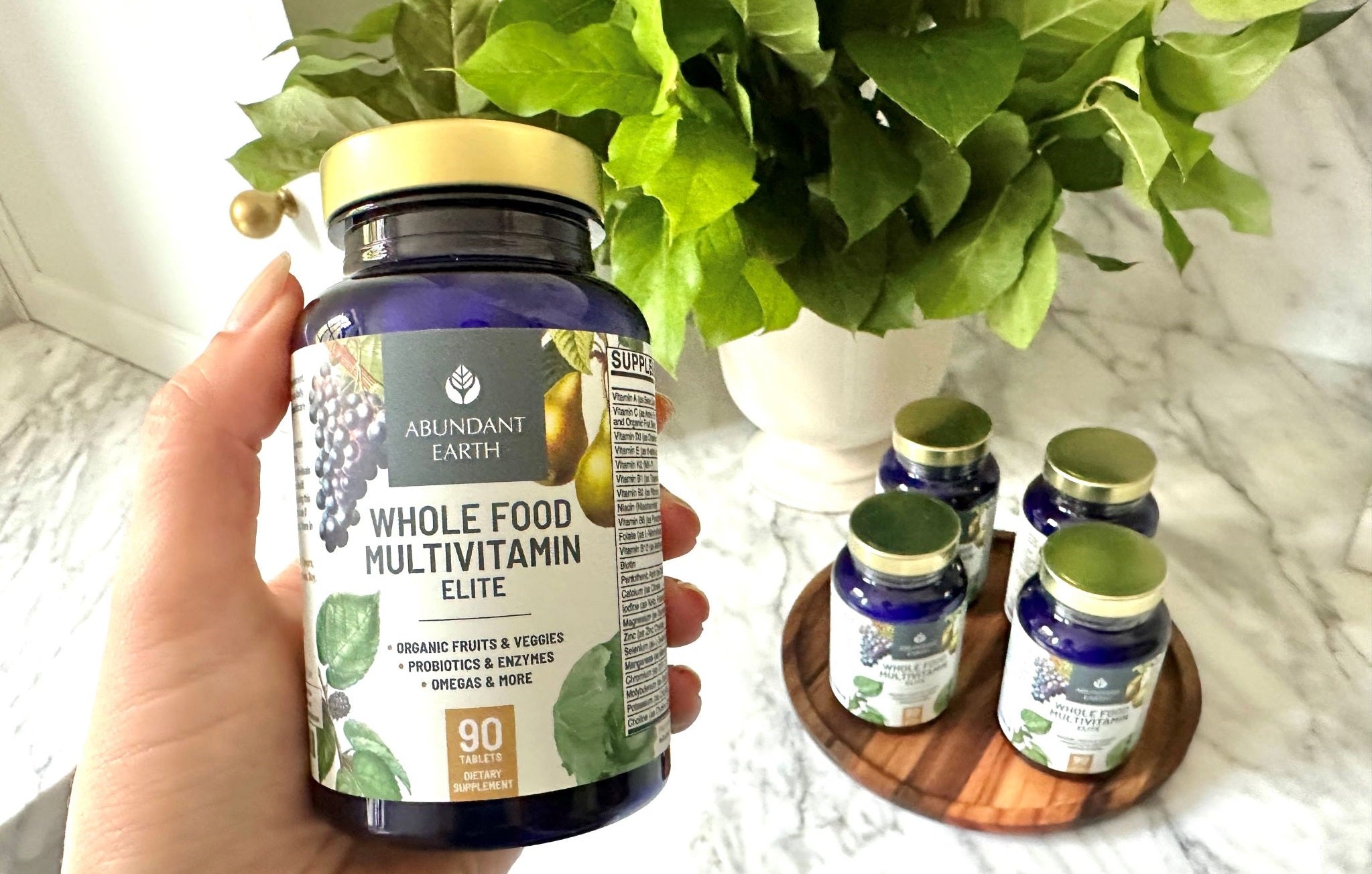Your Cart is Empty
January coupon: save $7 off your order* with code: jan7
January coupon: save $7 off your order* with code: jan7

At Abundant Earth, we believe that every ingredient in a supplement should be there for a reason, and that includes what we don’t include. One of the most common questions we get is: "Why doesn't your multivitamin contain iron?"
The short answer: because the science says it shouldn't.
Iron is an essential mineral. It supports oxygen transport, energy production, and overall vitality. We are pro-iron! But when it comes to multivitamins, more isn't always better.
Multiple studies have shown that iron competes for absorption with other minerals commonly found in multivitamins, especially calcium and zinc. For example, research published in the American Journal of Clinical Nutrition found that calcium significantly inhibits iron absorption when taken together¹ (Hallberg et al., 1991).

That means when iron is bundled into a multivitamin that also contains calcium, magnesium, and zinc (such as our robust formula), your body may not absorb much of the iron at all. This interaction has fueled growing awareness around multivitamin and iron absorption and whether it’s wise to combine them in one formula.
Emerging guidance from nutrition science now suggests that iron should be taken separately from multivitamins for maximum benefit. According to the National Institutes of Health Office of Dietary Supplements, iron is best absorbed on an empty stomach and away from calcium-rich foods or supplements² (NIH Fact Sheet on Iron).

If you’re wondering, should I take iron with my multivitamin?—the best approach is to use a high-quality iron free multivitamin and, if needed, a separate iron supplement taken at least 4 hours apart. This ensures better nutrient bioavailability and supports optimal absorption.
Not everyone needs to supplement with iron. In fact:
Most men and postmenopausal women get enough iron through diet alone.
Women of childbearing age, athletes, or individuals with diagnosed iron-deficiency anemia may (and often DO) benefit from a separate iron supplement.
Your healthcare provider can run a simple blood test to determine if you’re low.
By keeping our Whole Food Multivitamin iron-free, we give you the flexibility to supplement iron only if you need it, and if so, to take it separately so it is most effective.

We formulate with purpose and effectiveness. That means using the most bioavailable forms of nutrients, avoiding fillers, and following the best of current nutrition science. Our Iron-Free Whole Food Multivitamin is packed with highly absorbable and methylated B vitamins, chelated minerals, and real organic food sources, without the ingredient clashes that limit absorption.
For those searching for the best iron free multivitamin for women and men, we believe the answer lies in thoughtful formulation, not just more ingredients.
Because better absorption = better results.

Including iron in a multivitamin may sound convenient, but it’s not effective. Iron simply doesn’t play well with others. That’s why we keep it out, so everything else in your multivitamin can work better for you.
If you need iron, take it separately. If you want a multivitamin that respects the science of nutrient absorption, you’re in the right place.
Formulated with organic food sources and the most bioavailable nutrients—without the iron conflicts. Gentle, complete, and MTHFR-friendly.
Hallberg, L., Brune, M., & Rossander, L. (1991). The role of vitamin C in iron absorption.The American Journal of Clinical Nutrition, 53(1), 112–119.https://academic.oup.com/ajcn/article/53/1/112/4692114
National Institutes of Health Office of Dietary Supplements. (2021).Iron – Fact Sheet for Health Professionals.https://ods.od.nih.gov/factsheets/Iron-HealthProfessional/